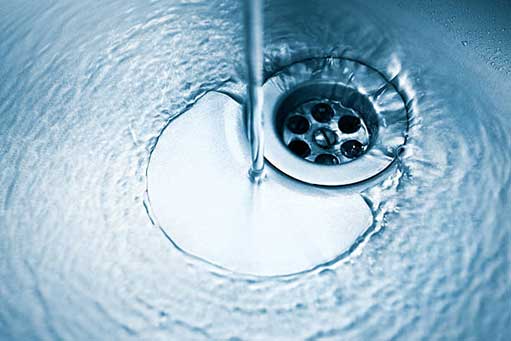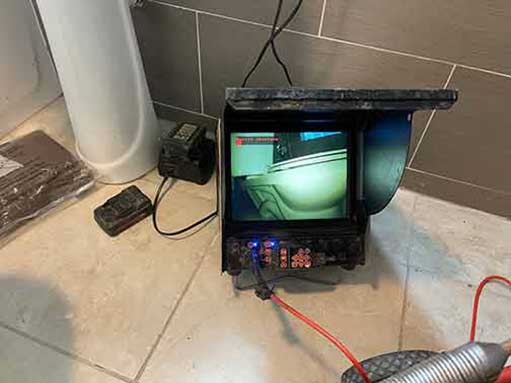
How often should you clean the drainpipes in your home?
There are two ways homeowners can answer this question:
- Homeowners can clean their drainpipes whenever one of the drains in the home becomes clogged.
- Homeowners can have a schedule for cleaning their drains regularly.
Which of these two options is better?
To answer the question, you must know why your drains need cleaning in the first place, advises Specialized Houston Property Management. Simply put, drains need cleaning because of the debris collecting inside them. But where does this debris come from, and why does it build up inside the system?
Why do drains get clogged?
Drains become clogged when some of the waste that enters them is left behind inside the pipes. That is because wastewater often contains a lot of semi-solid and solid materials. This non-liquid content – such as human waste, soap scum or food particles – can stick inside the pipes.
It mostly happens when the semi-solid/solid waste is too much for the water inside the pipes to move. Or there may be insufficient water inside the pipes. But whatever the case, the effect is that water flows out of pipes while the non-liquid materials are left behind.
At first, only small amounts of materials are deposited inside the pipe. But as the process repeats and more debris is deposited in the pipe, the buildup rate gradually increases. That will continue until the point is reached where even water cannot flow through the pipe freely.
When this happens, you experience it as a clog in your home’s drains.
This natural process does not happen suddenly; it is gradual. Furthermore, it does not have to result in a clogged drain. The process only causes a clogged drain when homeowners are unaware of what is happening inside their drains.
How to clean your home’s drains
The majority of homeowners wait until the tail-end of the above process to clean their drains. They wait until a clog has already formed in the drains. There are many reasons why this plan is not the best one for your pocket or the function and longevity of your drains.
Clogs in your home’s drainage system subject the pipes to unnecessary stresses. Also, the trapped debris in the pipe contains toxins that can weaken pipe materials and compromise the structural integrity of your entire drainage system.
Additionally, it is economically inappropriate to wait until clogs form before attempting to clear them. There is an increased risk of damage to the pipes. In addition to the higher cost of clearing the clog, you may have to pay to repair your damaged pipes.
A routine cleaning program is a better plan for dealing with drain clogs. Why is that?
Regular drain cleaning and why it is important
Regular drain cleaning is a process of ongoing maintenance of your home’s drains. Instead of waiting until there is a problem before you clean your drains, you clean them regularly to prevent issues in the drainage system.
This process is proactive rather than reactive.
In other words, you are steps ahead of the problems in your drains and constantly taking measures to prevent them from worsening. This drain cleaning program actively looks for problems to solve them quickly and affordably.

Usually, the entire drainage system of the home is inspected using a sewer camera inspection.
What is involved in a program of regular drain cleaning?
Typically, the entire process is done once a year and involves two essential steps:
- Professional inspection of the drain: Usually, the entire drainage system of the home is inspected using a sewer camera inspection
- Professional drain-cleaning service: The drain is cleaned by rodding or hydro jetting the drain pipes. The two cleaning methods can also be deployed.
Benefits of regular drain cleaning
Prevent clogs and blockages
Instead of constantly striving to remove clogs from your pipes, regular cleaning helps prevent them. You will be treating the root cause of the problems and not just the symptoms.
Eliminate bad odors from your home
Clogged drains are a major source of bad odors. Regular cleaning will help remove the bacteria and decayed materials that cause bad odors.
Improve the efficiency of your drainage
Improved water flow, one of the natural outcomes of regular drain cleaning, helps to maximize the efficiency of your drainage system.
Extend the service life of your plumbing
Efficient drainage systems with proper water flow are less likely to have problems and more likely to exceed their projected lifespan.
You save money in the short- and long-term
Regular drain cleaning helps to lower the overall cost of maintaining your drainage systems. You also save money in the long run since you will avoid premature plumbing replacement.
To sum up: how often should you clean your home’s drains? Cleaning the drains should be done regularly. That is the only way to effectively combat the never-ending processes that cause clogs and blockages inside your drains. Any other method will be inefficient and costly.